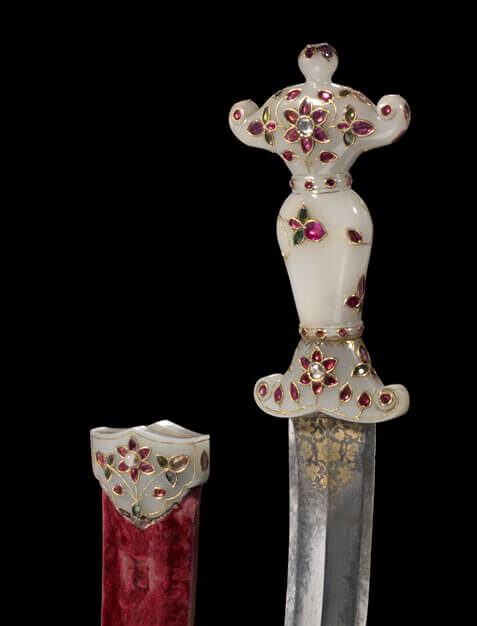
LNS 728 HS a,b
Dagger and scabbard, the jade hilt and the scabbard’s locket and chape decorated with floral motifs inlaid with gold and set with rubies, diamonds and
The al-Sabah Collection possess an unparalleled assemblage of pre-Islamic and Islamic jewellery and jewelled objects. These objects represent not only the almost eternal quest for beauty, but the aesthetic and technical skills of generations of artisans.
In addition to what is certainly the largest and most representative collection of mediaeval Islamic jewellery in the world, the collection houses an incomparable representation of the jewellery and jewelled objects of the Mughal and Deccan territories of India of the 16th to 18th centuries. The latter has been extensively shown worldwide in the Treasury of the World: Jewelled Arts of India in the Age of the Mughals exhibition, its first venue being the British Museum in London in 2001.
The collection’s holdings of jewellery of the pre-Islamic periods from the Near East and Central and South Asia are extremely extensive and distinguished. The variety of pieces from the early Bronze Age to Late Antiquity is notable and includes gold necklaces, rings and bracelets, a large royal carnelian intaglio and several Bronze Age cylinder seals.
The collection is also rich in items fashioned of decorative hardstones, principally jade and rock crystal. Some of the rock crystal objects date from the early mediaeval period and consist principally of small bottles, beads and gaming pieces. These rare objects date from the 9th to the 11th centuries.

Dagger and scabbard, the jade hilt and the scabbard’s locket and chape decorated with floral motifs inlaid with gold and set with rubies, diamonds and
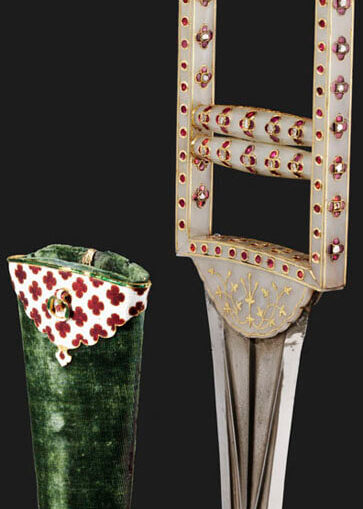
Katar dagger and scabbard (probably not original to the dagger), the jade hilt decorated with quatrefoils of rubies and diamonds, and with small ruby circles
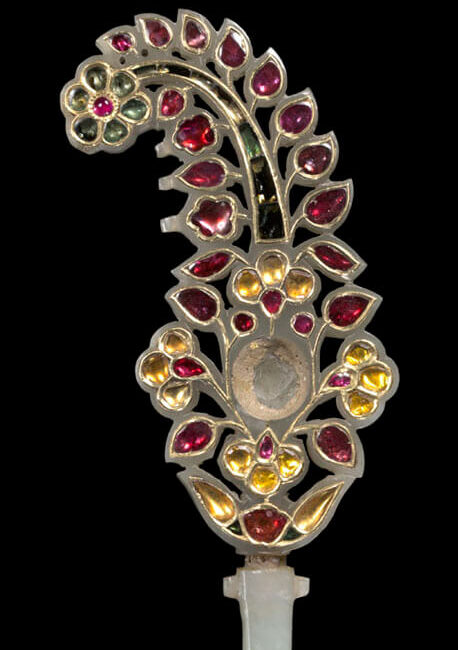
Turban ornament
Carved from nephrite jade; inlaid with gold in kundan technique and set with rubies, emeralds and (probably) white sapphires against a yellow
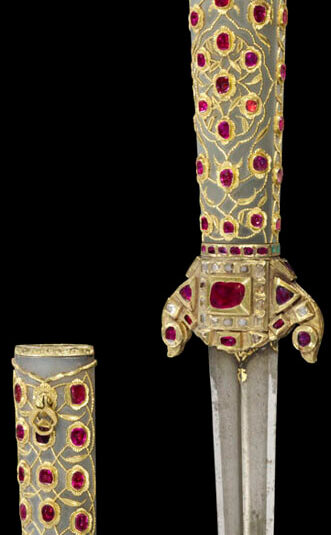
Dagger made in the imperial Ottoman workshops, with gold-inlaid jade hilt and scabbard set with rubies, diamonds and emeralds, and finely engraved gold quillons
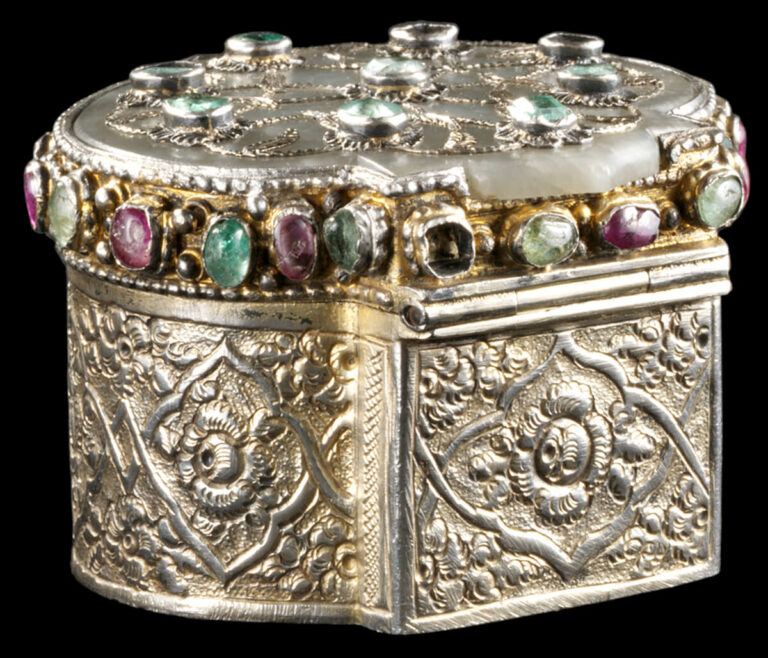
Gilt silver box with lid comprised of a jewel-framed silver- and emerald-incrusted jade plaque
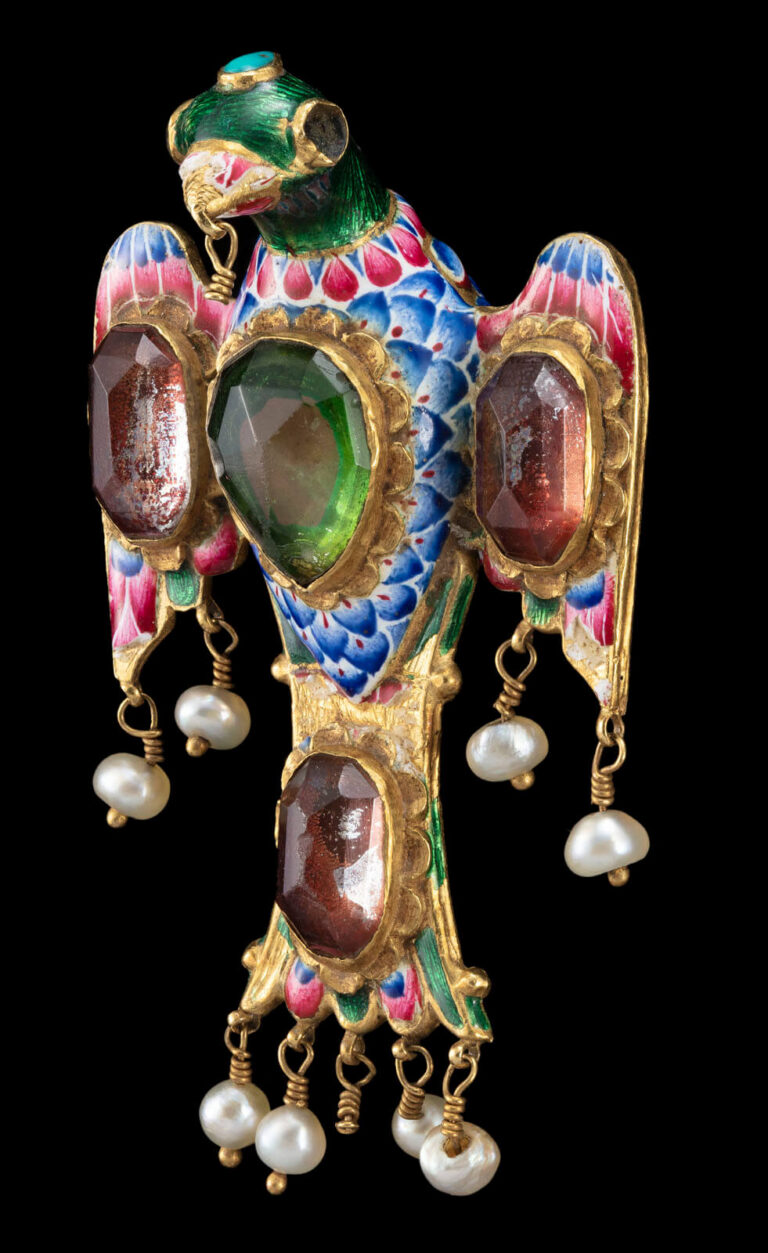
Gold pendant in the form of a bird of prey, all-over decorated with encrusted and painted enamels and set with rock crystal over coloured foils
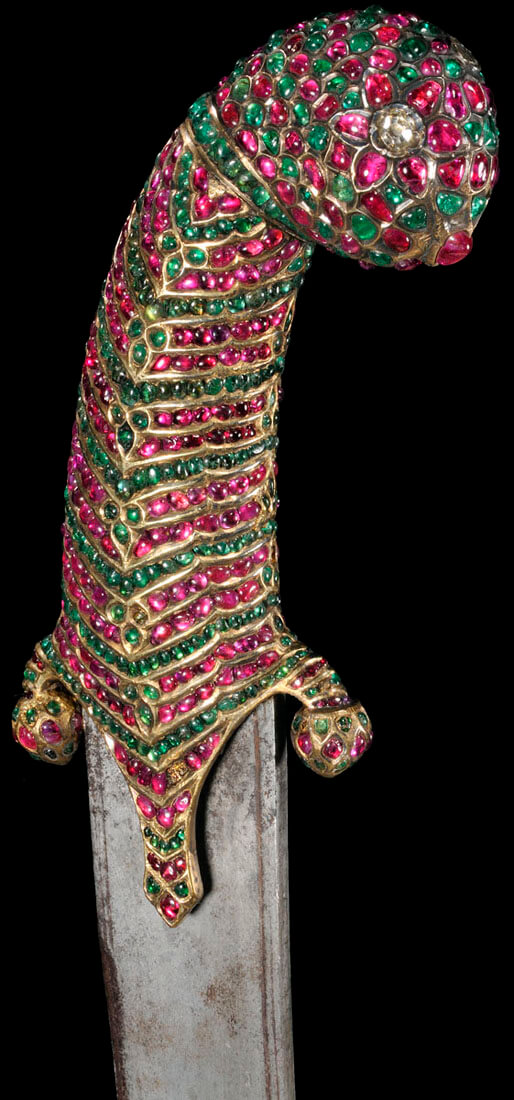
Sword and hilt, the pommel in the form of a stylised parrot’s head set with rubies and emeralds in an imbrication pattern, the ‘eyes’ set
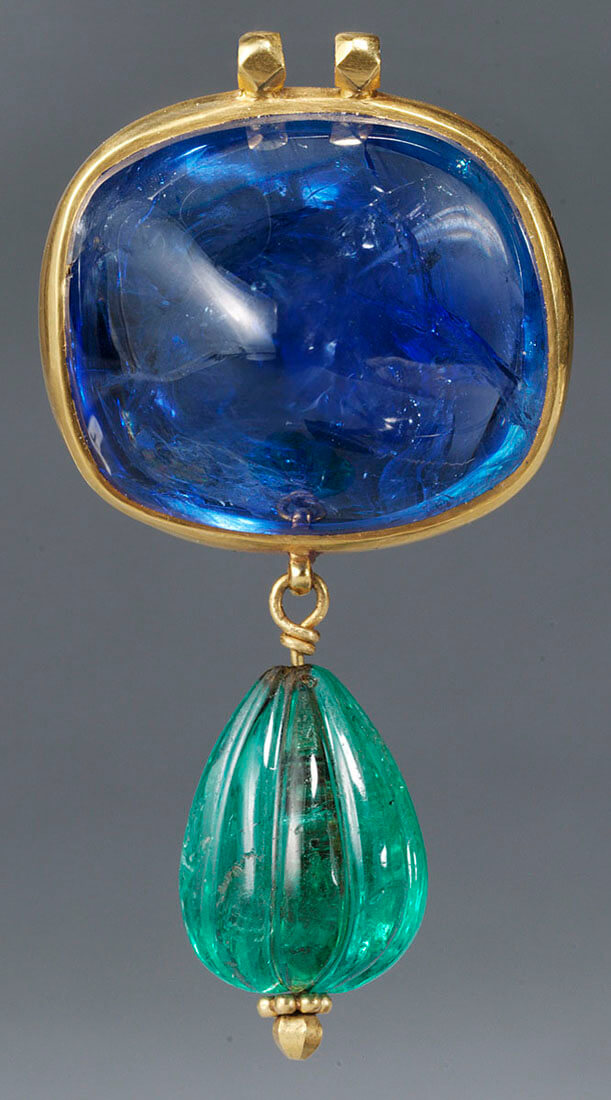
Pendant set with a large blue sapphire cabochon of rounded pyramidal shape, with suspended ribbed emerald bead of drop shape (modern gold settings)
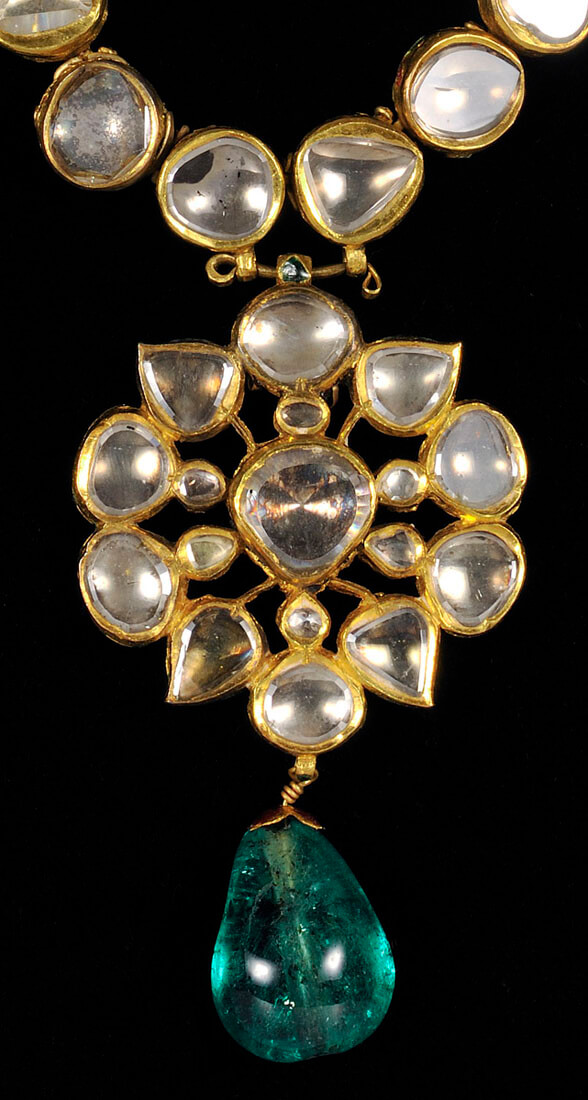
Gold necklace and pendant set with diamonds, with pendant emerald bead, champlevé-enamelled in green on the back of the hinged ‘chain’ elements, and with red,
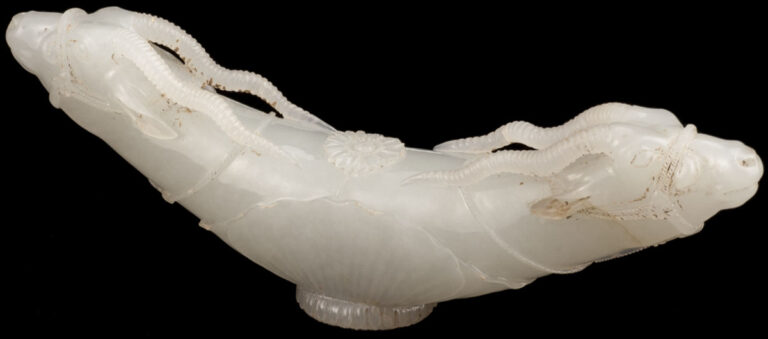
Jade ‘crutch’ (zafar takiya) head, exquisitely carved in the form of two naturalistic haltered blackbuck heads and necks, resting on a lotus leaf, with a
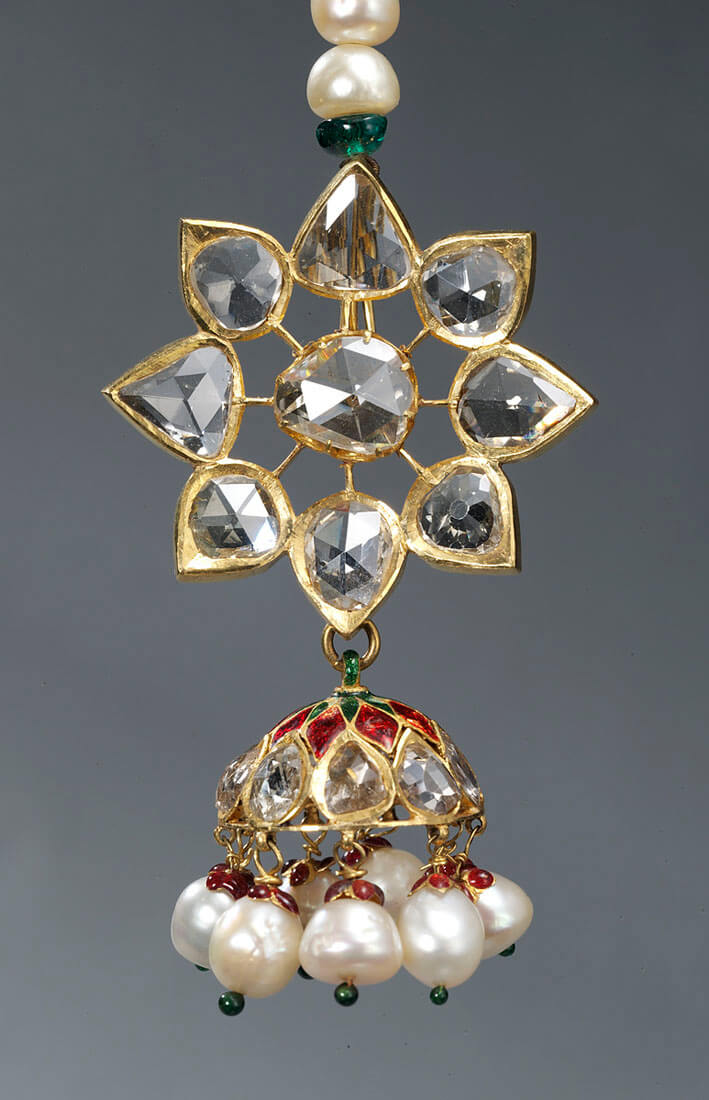
Gold head ornament featuring a floral element set with ajour diamonds, from which is suspended a domical enameled element with dangling pearls and set with
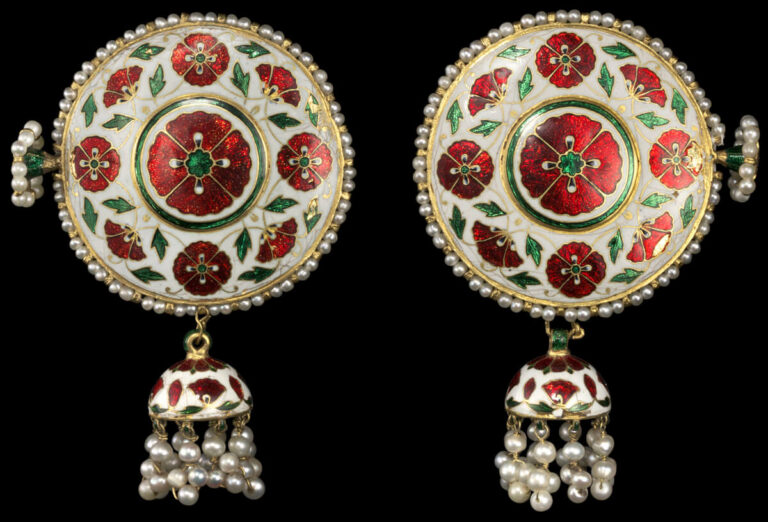
Pair of gold earplugs with decorative rosettes projecting from the front, and pendant elements, all augmented with pearls; champlevé-enamelled with poppy flower motifs on formally-arranged
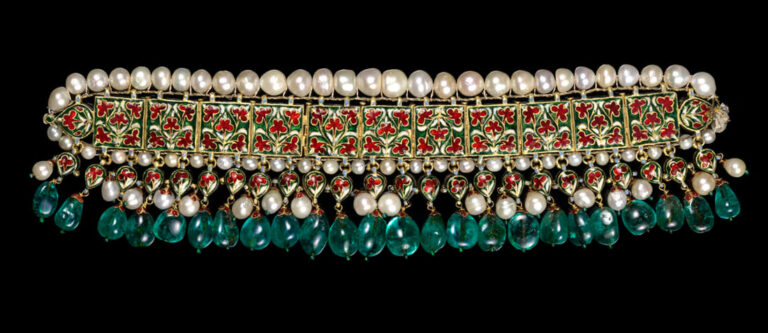
Gold ‘choker’ necklace, comprised of hinged elements set with large flat diamonds, strung with pearls, and with pendant emerald beads and pearls; backs of hinged
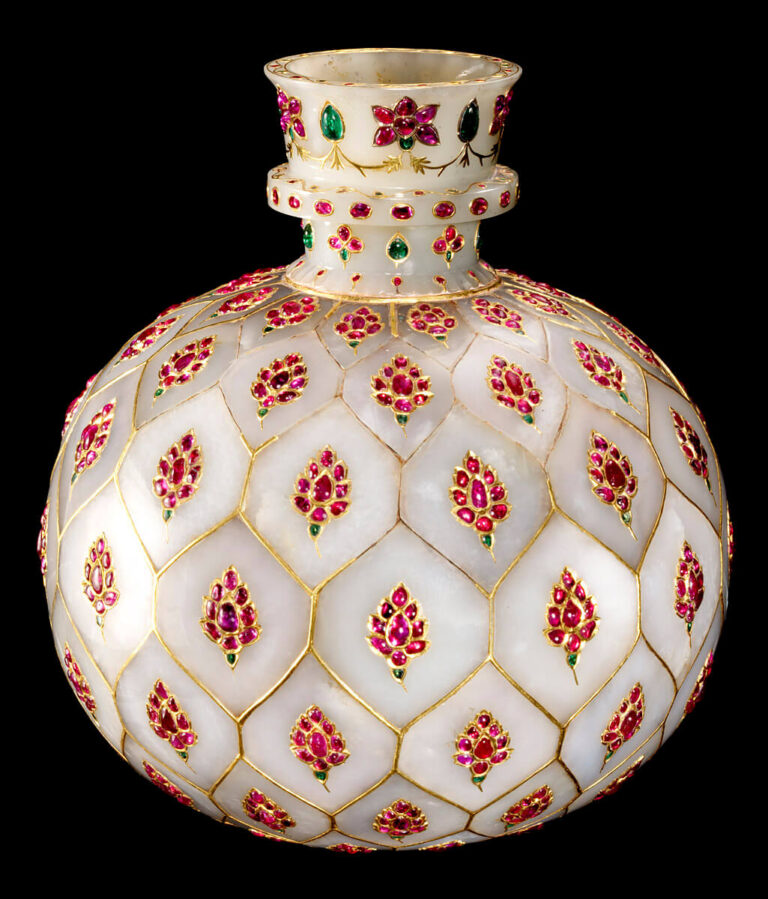
Huqqa (hookah) reservoir of off-white jade, inlaid with floral motifs in rubies and emeralds; neck carved from one piece, compartments of body separately carved and
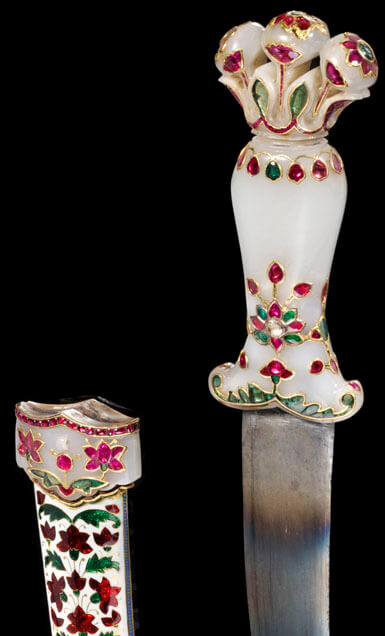
Dagger and scabbard, the form and decoration of the jade hilt of floral character, inlaid with gold and set with rubies, diamonds and emeralds; blade